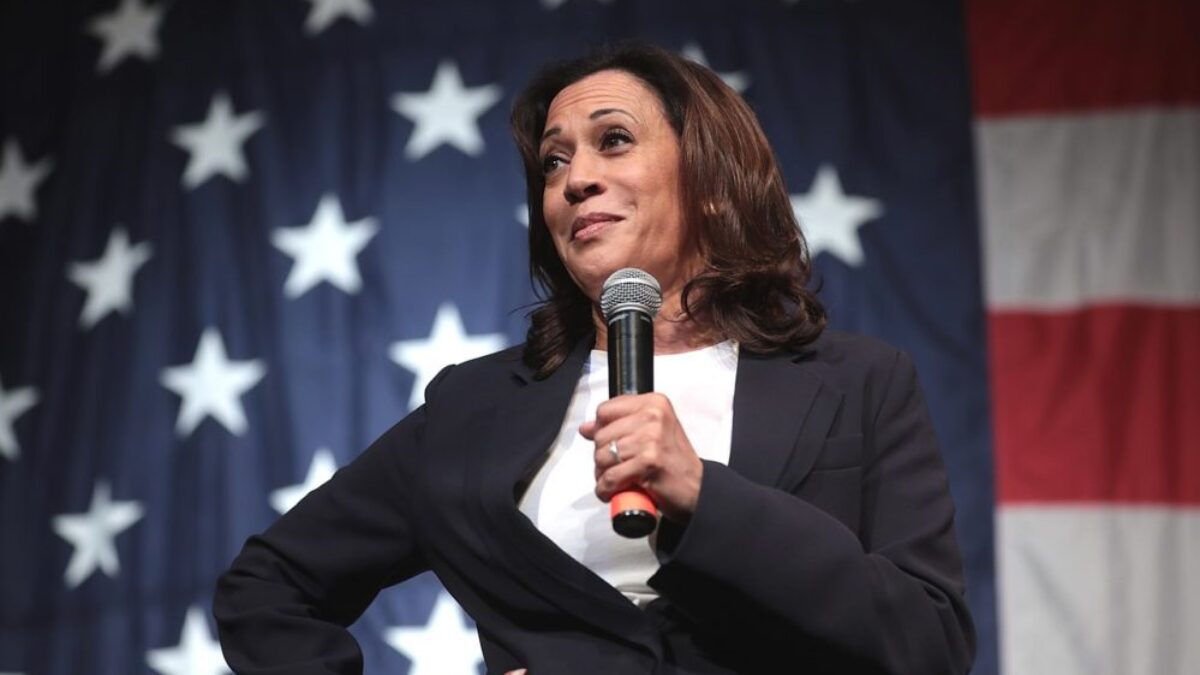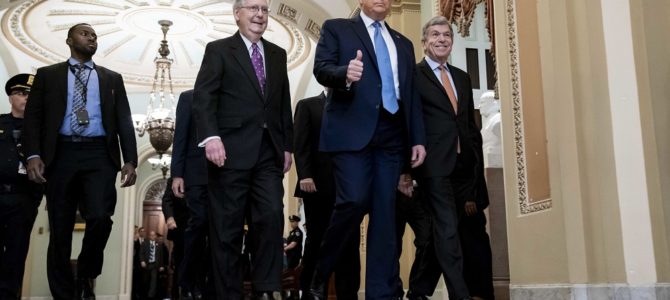
At the dawn of the Republic, James Madison famously warned against the “violence of faction,” and asserted that our Constitution—his Constitution—would cure its ills. “If a faction consists of less than a majority,” he asserted in Federalist 10, “relief is supplied by the republican principle, which enables the majority to defeat its sinister views by regular vote. It may clog the administration, it may convulse the society; but it will be unable to execute and mask its violence under the forms of the Constitution.”
It was a nice try. But history, unfortunately, has proven Madison wrong. The recently passed “omnibus” spending and tax bills show us how.
Factions—today we call them special interests—routinely have their way, obtaining lucrative privileges for themselves while foisting the costs onto others. When policy makers indulge factions with special privileges, they waste resources and misdirect entrepreneurial talent; they stymie economic growth and arrest creative destruction. Selective favoritism isn’t only economically costly. It’s culturally costly, undermining the legitimacy of both markets and government.
But how does this work? How, in a system of majority rule, are the few able to obtain privileges at the expense of the many? These deals—such as those in the omnibus spending and tax bills—include a litany of goodies for Washington interest groups, including $830 billion of unfunded tax breaks and tens of billions of dollars of spending increases in the New Year.
Enter the Logroll
In the years since Madison wrote Federalist 10, political scientists and public choice economists have come to recognize the importance of an oddly named legislative phenomenon called a “logroll.” It is a deal whereby one group of lawmakers agrees to support another group’s goals in exchange for the latter’s support of their own. As the late public-choice theorists James Buchanan and Gordon Tullock showed, legislative bodies are able to form logrolls in which the social costs far exceed the benefits.
Logrolls often tie special-interest indulgences to general-interest necessities. In this case, a slew of favors were lumped together with a must-pass measure that raised the debt ceiling and prevented government default.
Logrolls also often hide special-interest favors behind good policy. Here, Congress conspicuously ended a 40-year embargo on exporting crude oil, an eminently sensible development. The oil export ban, a remnant of the 1973 oil embargo, was a regulatory subsidy to certain refiners because it artificially depressed the price they pay for their input. But economists have known for centuries that trade restrictions of any type do more harm than good which is why the vast majority of professional economists oppose them.
Moreover, in order to remove this regulatory subsidy for refiners, some policy makers insisted on new and extended tax subsidies for a lucky few. Sen. Tom Carper (D-Delaware), for example, attached a new federal tax credit for oil refineries, valued at $1.9 billion over the next 10 years. The credit will boost the after-tax income of a small number of qualifying Northeastern refineries by about 1 percent.
This new tax privilege accompanies the usual list of tax favors, including some 13 benefits for energy production; a 10-year, $113 billion expansion in the poorly designed and ineffective research and development tax credit; a privilege for film and television production companies; and concessions to Puerto Rican rum distillers, motorsports complexes, and racehorse owners.
Year-end omnibus bills with thousands of pages of competing priorities are the perfect vehicles for logrolling agreements. By tying hundreds of disparate special interest privileges into one massive bill, policy makers are able to win majority support for policies that would never survive on their own.
Here, Kids, Pay for My Debt-Inflated Subsidies
No doubt many policy makers voted for these special-interest concessions because the deal also included $118 billion of extended and expanded privileges for families with children and low-income taxpayers (these benefits were originally intended to be temporary relief during the recession, which ended over six years ago).
The larger the number of arcane, complex, and boring policies rolled into one big bill, the easier it is for special interests to win favors without anyone noticing.
Special privileges for factions are especially easy to pass when lawmakers spare current voters the cost. As Vox’s Ezra Klein notes, the biggest lesson from the omnibus deal was that “No one cares about the deficit.” In addition to more than $800 billion in targeted tax subsidies, the $1.1 trillion budget deal sets 2016 spending levels and increases federal spending by $50 billion over the previously agreed to 2016 sequester caps, worsening the already bad fiscal condition of the United States.
By foisting current spending onto future taxpayers, policy makers create a negative externality for future generations. Thus, they ensure that much of the violence of faction is born by the next generation.









